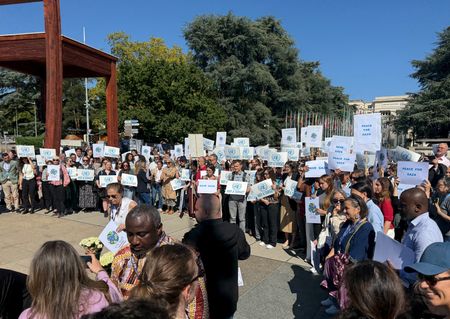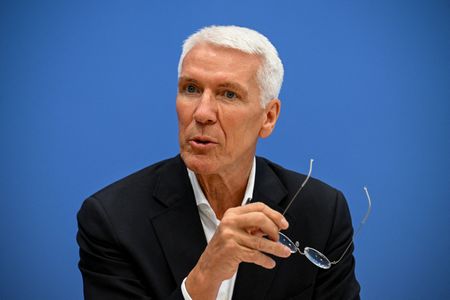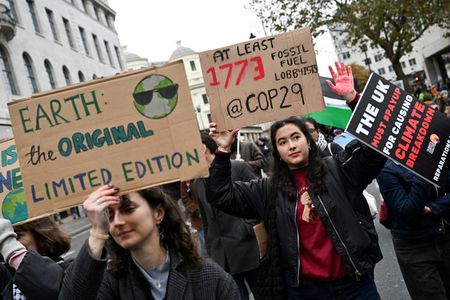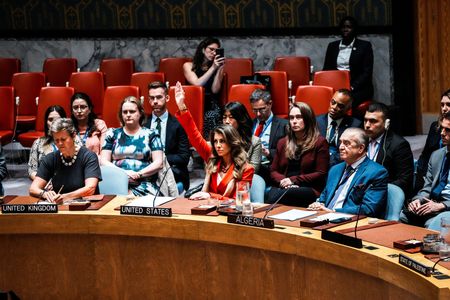BERLIN (Reuters) – German cities face severe financial difficulties, with most unable to present balanced budgets this year amid poor growth and high social spending, a survey showed on Monday, days before an election where the ailing economy is a key issue for voters.
Intense foreign competition, higher energy costs and interest rates and economic uncertainty have weighed on Germany’s economy, which shrank in 2024 for a second year and is expected to contract further this year.
Around 37% of major cities in Germany are unable to balance their budgets and 47% rely on reserves, a survey by the German Association of Cities found.
The survey results come less than a week before the federal election, in which the ailing economy is the top issue for voters and the far-right Alternative for Germany (AfD) party is anticipated to secure second place.
Just 2% of Germany’s cities were optimistic about their finances for the next half decade, down from 64% in the past five years, and nearly half expect worsening budgets, suggesting potential staff and services cuts to come and stalled infrastructure projects.
“The era of balanced municipal budgets is over … The issue is structural, not the fault of the cities themselves,” Markus Lewe, president of the association, said at a news conference in Berlin on Monday.
Lewe said the incoming federal government must take urgent action to prevent a complete collapse of cities’ finances through measures such as a fairer sharing of tax revenue, full funding for federally assigned mandates and a reevaluation of the debt brake.
Rising social spending has been a major strain on city budgets, including costs for childcare, disability support and elder care.
Municipal social expenses surged 12% last year, with child and youth welfare costs doubling over the past decade from 32.8 billion euros to 67.6 billion euros ($70.84 billion), according to the association.
The main cost drivers are new unfunded mandates from federal and state governments which are almost never fully financed, such as the legal right to all-day childcare.
The influx of refugees has further driven up spending on child, youth, unemployment and social welfare, it added.
“We are facing mammoth tasks with transformation tasks such as the transport … energy … or the heat transition. How these massive investments are to be financed has hardly been clarified anyway,” said Burkhard Jung, the association vice president.
($1 = 0.9542 euros)
(Reporting by Riham Alkousaa; Editing by Bernadette Baum)









